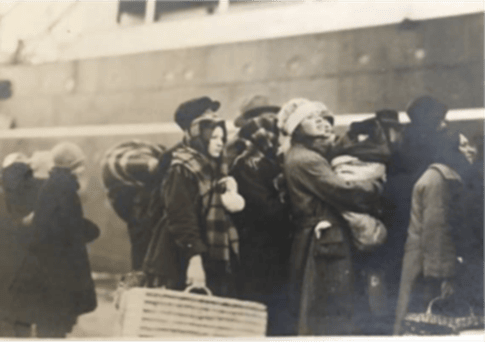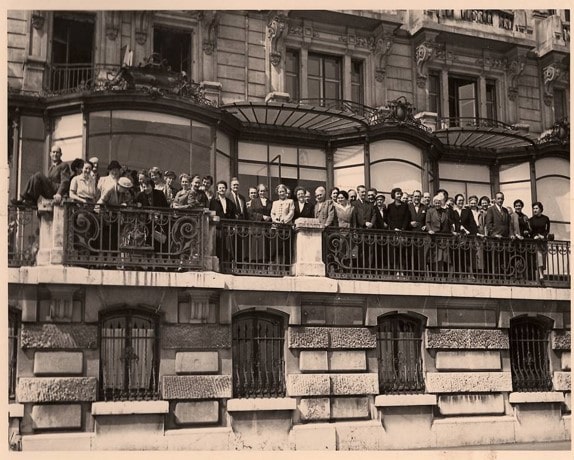

ISS (previously known as the International Migration Service – IMS) was actually created as a name in 1921 in London by the American branch of the Young Women’s Christian Association (YWCA) together with some well-known aristocrats from European families with the goal of assisting women migrants travelling alone from Europe to the United States in the delicate post-war period. In 1924, IMS/ISS moved to Geneva in order to foster and strengthen inter-institutional ties.
ISS cooperated closely with UN agencies such as the International Refugee Organisation (IRO – the predecessor of the UN High Commission for Refugees). ISS staff provided training to IRO counsellors and worked in camps for displaced persons in Germany, Austria and Italy, assisting unaccompanied minors providing each child a socially sound plan and tracing services of family members in other countries. Many of the cases ISS dealt with were controversial. Repatriation was often promoted by countries of origin or parents who, wanted their children returned to them once located, yet families who had meanwhile provided care for those children wanted to keep them. Such controversies have recurred as part of ISS casework so that ISS has now become accustomed to securing appropriate reports for the considerations of Courts as part of its role.
in order to respond to the needs of thousands of children and families facing difficulties as a result of migration, military action, conflict and employment. In addition there was an increase in mixed marriages, an augmentation in the number of children born of out these relationships as well as an rise in the number of separated families and unaccompanied children. The need for ISS assistance grew rapidly especially in the areas of finding the best alternative for children deprived of their family or resolving questions of custody, visiting rights and maintenance in situations of cross-cultural separation and divorce. ISS also received a mounting number of requests to assist unaccompanied minors to re-establish contact with their families as well as separated or adopted children in search of their origins.
ISS has also undertaken numerous specific projects. For example, it helped reunite Greek children who were forced to leave their country with their families after the 1942-1949 civil war.
ISS actively participated at the UN Expert Group which for the first time, identified 12 fundamental principles in intercountry adoption that were endorsed by the United Nations and which has become the basis for national and international legislation ever since.
ISS provided refugees fleeing from dictatorships of Chile, Argentina, Uruguay with psychosocial assistance, legal orientation and financial support. During the same period, it helped 4000 Vietnamese refugees who reached Hong Kong at the end of the war to benefit from location and reuniting of families, as well as from language training and counselling social services. The organisation also supported British women establish contact with their husbands in Libya and arranged meetings with their children.
The expertise of ISS in assisting families and children facing difficulties as a consequence of migration also allowed the organisation to actively participate in the development of principles, norms and international instruments of major importance in this area.
ISS participated in various drafting sessions at the Hague Conference on Private International Law for the development of the Convention of 1980 on the Civil Aspects of International Child Abduction.
.
Consulte pronto esta página para conocer la historia completa del SSI.